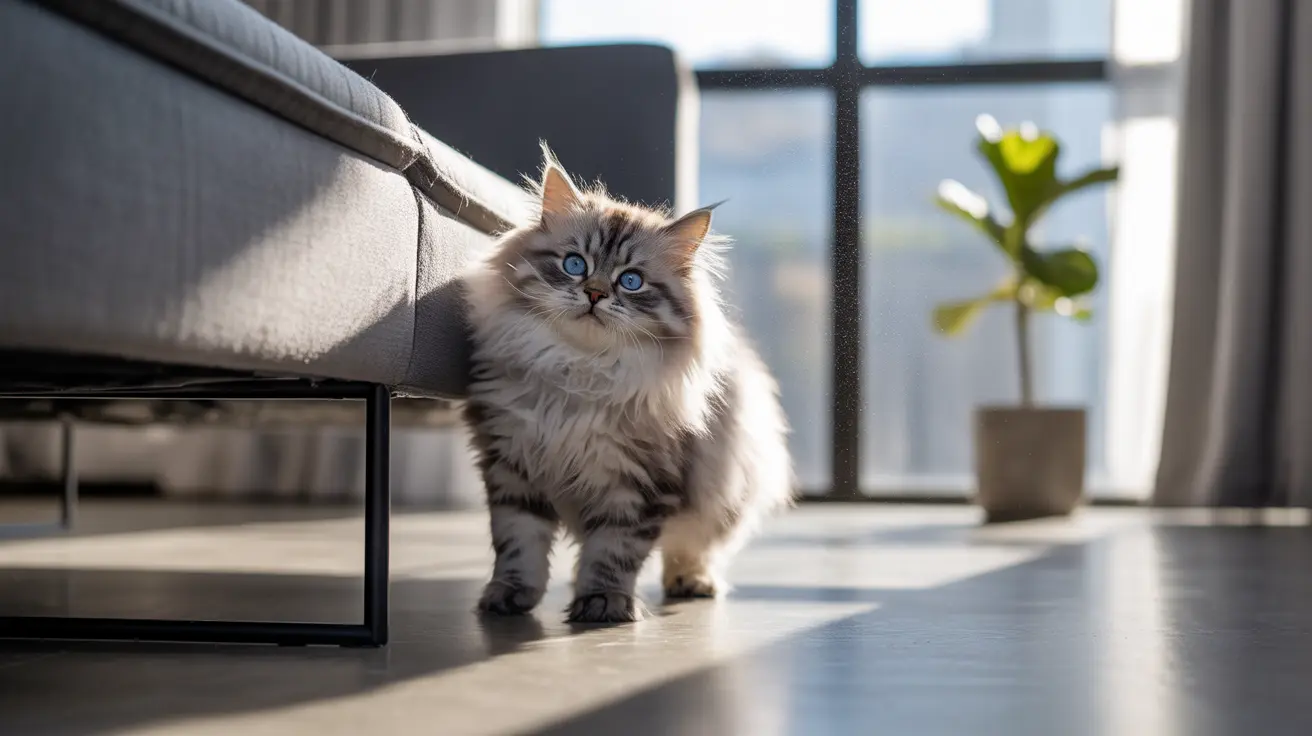Understanding Sudden Jumpiness in Cats
When your typically calm cat suddenly becomes jumpy and easily startled, it can be both concerning and frustrating for pet owners. This unexpected change in behavior often signals that something isn't quite right in your cat's world, whether it's environmental changes, health issues, or psychological factors.
Understanding the root cause of your cat's sudden jumpiness is crucial for addressing the issue effectively and ensuring your feline friend's wellbeing. Let's explore the various reasons behind this behavior and learn how to help your cat feel secure again.
Common Causes of Sudden Jumpiness
Environmental Triggers
Cats are highly sensitive to their environment, and sudden changes can trigger jumpy behavior. Common environmental factors include:
- New furniture or home renovations
- Changes in household routine
- Unfamiliar visitors or new pets
- Loud noises from construction or storms
- Moving to a new home
Medical Conditions
Sometimes, sudden jumpiness can indicate underlying health issues that require veterinary attention:
- Hyperthyroidism
- Feline hyperesthesia syndrome
- Pain or injury
- Neurological conditions
- Senior cognitive dysfunction
The Role of Stress and Anxiety
Stress is a significant contributor to jumpy behavior in cats. Recent changes in their environment or routine can trigger anxiety, leading to heightened alertness and startled responses. This can be particularly noticeable if you've recently:
- Changed your work schedule
- Introduced new family members
- Modified feeding times
- Relocated their litter box or feeding area
How to Help Your Jumpy Cat
Creating a Safe Environment
Help your cat feel more secure by:
- Providing hiding spots and elevated perches
- Maintaining consistent daily routines
- Using feline pheromone diffusers
- Creating quiet zones away from household activity
- Minimizing sudden noises and movements
Professional Support
If your cat's jumpiness persists, consider seeking professional help:
- Schedule a veterinary check-up to rule out medical issues
- Consult with a feline behaviorist
- Discuss potential anxiety medications with your vet
- Document behavioral changes to share with professionals
Frequently Asked Questions
Why is my cat suddenly so jumpy and easily startled?
Cats can become jumpy due to environmental changes, medical conditions, stress, or anxiety. Common triggers include loud noises, new household members, or underlying health issues that need veterinary attention.
What medical conditions can cause a cat to become jumpy or anxious out of nowhere?
Several medical conditions can cause sudden jumpiness, including hyperthyroidism, feline hyperesthesia syndrome, pain or injury, neurological disorders, and cognitive dysfunction in senior cats.
How can changes in my cat's environment make them more skittish or nervous?
Environmental changes like moving homes, new furniture, different routines, unfamiliar visitors, or new pets can disturb your cat's sense of security and lead to skittish behavior.
What are effective ways to help a jumpy or anxious cat feel safe and calm?
Create safe spaces with hiding spots, maintain consistent routines, use feline pheromone products, provide elevated perches, and minimize sudden noises or movements that might startle your cat.
When should I take my jumpy cat to the veterinarian for behavioral changes?
Consult a veterinarian if your cat's jumpiness persists for more than a few days, is accompanied by other behavioral changes, or if you notice additional symptoms like changes in appetite, grooming habits, or litter box use.
Conclusion
While sudden jumpiness in cats can be concerning, understanding its potential causes is the first step toward helping your pet feel secure again. Remember that patience and consistency are key when addressing behavioral changes, and don't hesitate to seek professional help if the behavior persists or worsens.
By creating a calm environment, maintaining regular routines, and addressing any underlying health issues, you can help your cat return to their normal, relaxed self. Always consult with your veterinarian if you're unsure about the cause of your cat's behavioral changes, as they can provide personalized guidance for your specific situation.






